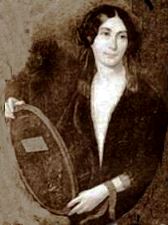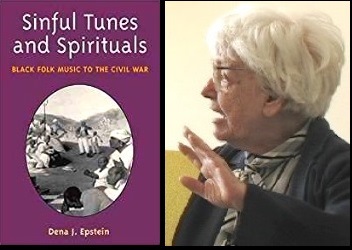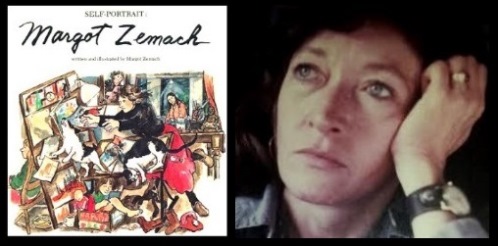November 30th is

Cities for Life Day *
Computer Security Day *
Mason Jar Day *
National Mousse Day
_______________________________________
MORE! Mark Twain, Takako Doi and U Thant, click
_______________________________________
WORLD FESTIVALS AND NATIONAL HOLIDAYS
Argentina – Buenos Aires:
G20 Meeting
Barbados – Independence Day
Bolivia – Taquiña: Día San Andrés

Czech Republic – Brno:
Apokalypsa Festival
Philippines – Araw ni Bonifacio
(birth of Andrés Bonifacio)
Romania – Sfânful Andrei
(Saint Andrew, protector of Romania)
Scotland – St. Andrew’s Day
(patron saint of Scotland)
Yemen – Independence Day
______________________________________
On This Day in HISTORY
3340 BC – Earliest known record of a solar eclipse, in Ireland

1485 – Veronica Gambara born, Italian political leader and poet; when her husband the Count of Correggio died in 1518, she took over running the city-state, including the condottieri (the military), and turned her court into a salon, drawing important Renaissance thinkers and artists; when the city was attacked in 1538 by the forces of Galeotto Pico II, she organized a successful defense, then oversaw improving the fortifications; 80 of her poems and 150 of her letters have survived

Veronica Gambara, by Antonio da Correggio
1508 – Andrea Palladio born, influential Italian architect; the Pallidian style of architecture is named for him

1667 – Jonathan Swift born, Irish satirist and essayist, Gulliver’s Travels

1782 – The Treaty of Paris, officially ending the Revolutionary War, is signed by representatives of English King George III and the American delegation: John Jay, John Adams, Benjamin Franklin, Henry Laurens, and William Temple Franklin. In the treaty, Britain acknowledges the United States of America to be free, sovereign and independent, and relinquishes all claims; the boundaries of the new nation are established; U.S. fishermen are granted fishing rights in the Grand Banks and the Gulf of Saint Lawrence; lawful debts to creditors of either side are to be paid; Congress will “earnestly recommend” that state legislatures recognize the rightful owners of all confiscated lands, provide for restitution to British subjects, and cease from additional confiscations; all prisoners of war will be released; Great Britain and the U.S. will both have perpetual access to the Mississippi River; any territories captured by the U.S. after the date the treaty is signed will be returned; and ratification of the treaty is to occur within six months of signing. The British delegation refuses to pose for Benjamin West’s painting of the signing, and it is never finished

1786 – The Grand Duchy of Tuscany, under Pietro Leopoldo I, becomes the first modern civil state to abolish the death penalty – commemorated as Cities for Life Day *
1803 – Spain completes the process of ceding Louisiana to France
1804 – U.S. Supreme Court Justice Samuel Chase is impeached by the House of Representatives, accused of political bias. He is later acquitted by the Senate
1813 – Louise-Victorine Choquet Ackermann born, French poet and author; noted for Poésies, premières poésies, poésies philosophiques

1829 – In Canada, the first Welland Canal trial run, five years to the day from breaking ground. The canal connects Lake Ontario and Lake Erie, bypassing Niagara Falls, and forming a key section of the Saint Lawrence Seaway

Opening the First Welland Canal by J.D. Kelly
1835 – Mark Twain born as Samuel Clemens, celebrated American novelist and humorist; Huckleberry Finn, Tom Sawyer

1838 – Three days after the French occupy Vera Cruz, Mexico declares war on France
1858 – Mason Jar Day * – John Landis Mason, a tinsmith, patents the Mason Jar’s distinctive metal screw-top, lid and rubber gasket, making home canning much safer

1858 – Jagadish Chandra Bose born in British India, polymath, physicist, biologist, botanist, archaeologist, and an early writer of science fiction; a pioneer in radio and microwave optics; inventor of the crescograph, which measures the growth of plants
1873 – Božena Benešová born, Czech author, poet and playwright, considered at the forefront of psychological prose; known for the Úder trilogy and Don Pablo, Don Pedro and Věra Lukášová
1874 – Winston Churchill born, English statesman and writer, British Prime Minister during WWII, Noble Prize laureate

1874 – Lucy Maud Montgomery born, English-Canadian author; best remembered for her Anne of Green Gables series

1886 – The Folies Bergère stages its first revue
1900 – Mary Lasker born, health activist, worked with the Birth Control Federation of America (renamed Planned Parenthood 1942); also lobbied for federal funding for the National Cancer Institute and National Heart Institute

1906 – John Dickson Carr born, American author and playwright; noted for The Hollow Man and his detective series, featuring Dr. Fell and Sir Henry Merrivale; also published under pen names Carter Dickson and Roger Fairbairn
1916 – Costa Rica signs the Buenos Aires Convention, a copyright treaty
1916 – Dena Epstein born, American musicologist, music librarian, and author; noted for her research on the historic origins of American slave music, author of Sinful Tunes and Spirituals: black folk music to the Civil War; president of the Music Library Association (1977-1979)

1919 – Jane C. Wright born, American surgeon and pioneer in cancer research, who developed a technique of using human tissue culture to test potential drugs on cancer cells, and was first to use methotrexate in the treatment of breast and skin cancer; combined with other treatments, this extended the average lifespan of patients by ten years; one of the founders of the American Society of Clinical Oncology; first woman president of the New York Cancer Society

1924 – Shirley Chisholm born, the first African-American Congresswoman, (D-NY, 1969-83), and first woman/first African-American Democratic presidential nominee, received 151 delegate votes at the 1972 Democratic Convention

1926 – Teresa Gisbert Carbonell born, Bolivian historian of art and architecture, and author, specializing in the Andean region; director of the National Art Museum of La Paz (1970-1976); director od the Bolivian Cultural Institute (1986-1989); president of the International Council on Monument and Sites in Bolivia (1986-1992); her books include Iconografía y mitos indígenas en el arte (Indigenous Iconography and Myths in Art), and Arte textil y mundo Andino (Textile Art and the Andean World)

1928 – Takako Doi born, Japanese politician; first woman Speaker of Japan’s Lower House, to date the highest position held by a female Japanese politician in the country’s modern history; leader of the Japanese Social Democratic Party (1986-1991); recruited young women with grass-roots activist backgrounds to bring more Japanese women into politics

1929 – Dick Clark born, American Bandstand producer and host
1929 – Joan Ganz Cooney born, American screenwriter and producer; co-creator of Sesame Street

1931 – Margot Zemach born, prolific American children’s book illustrator and author of books often adapted from folk tales; won the 1974 Caldecott Medal for Duffy and the Devil, on which she collaborated with her husband, Harve Zemach

1934 – The ‘Flying Scotsman’ becomes the first steam locomotive to be authenticated as reaching 100 mph
1936 – In London’s Hyde Park, the Crystal Palace, built for the Great Exhibition of 1851, is destroyed by fire

The Crystal Palace, Hyde Park, London, in 1851 – © RIBA Library Drawings
1937 – Adeline Yen Mah born in China, Chinese-American physician, anesthesiologist and author, known for her bestselling autobiographical works, Falling Leaves and Chinese Cinderella. She also wrote a book on Chinese philosophy and children’s books

1945 – Hilary Jane Armstrong born, Baroness Armstrong of Hill Top; British Labour politician; Lord Temporal of House of Lords since 2010; Member of Parliament for Durham NW (1987-2010); Minister of various departments, including Minister for Local Government (1997-2001), and Chief Whip of the House of Commons/Parliamentary Secretary to the Treasury (2001-2006)

1947 – David Mamet born, American playwright-screenwriter-director; American Buffalo
1950 – Patricia Ann Tracey born, American naval officer; first U.S. woman promoted to the rank of Vice Admiral in 1996; Director of Navy Staff (2001-2004); Deputy Assistant Secretary of Defense for Military Manpower and Personnel Policy, the Pentagon (1998-2001); Director of Naval Training, Office of the Chief of Naval Operations (1996-1998); Commander of the Naval Training Center, Great Lakes (1995-1996)

1954 – In Sylacauga, Alabama, U.S., the Hodges meteorite crashes through a roof and hits a woman taking an afternoon nap; this is the only documented case in the Western Hemisphere of a human being hit by a rock from space
1955 – Billy Idol born, English singer-songwriter
1962 – U Thant of Burma is elected as the third UN Secretary-General (1961-1971), succeeding Dag Hammarskjold of Sweden, who was killed in a plane crash

1965 – The state government of Colorado declares this day to be ‘Rolling Stones Day’
1966 – Barbados becomes independent from the United Kingdom
1967 – The People’s Democratic Republic of Yemen becomes independent from the UK
1968 – Sly & The Family Stone release “Everyday People”
1971 – Iran seizes the Greater and Lesser Tunbs, islands in the Persian Gulf, from the United Arab Emirates; they are still disputed territory between Iran and UAR
1976 – Marta Burgay born, Italian radio astronomer; discoverer of PSR J0737-3039, the first known double pulsar; her thesis on radio pulsars won the 2005 Pietro Tacchini Prize, awarded by Società Astronomica Italiana

1979 – The Pink Floyd concept double album, The Wall, is released
1981 – In Geneva, representatives from the U.S. and the U.S.S.R. begin to negotiate intermediate-range nuclear weapon reductions in Europe; the meetings will end inconclusively on December 17
1982 – Michael Jackson’s second solo album, Thriller, is released worldwide, becoming the best-selling record album in history
1988 – The first Computer Security Day * is started by ACS, the Association for Computer Security; at the time, about 15% of U.S. households owned PCs (roughly 45 million personal computers – MS-DOS 4.01 was released in November), but Apple II, Macintosh, Commodore 64, Atari ST and Amiga were also popular home computers
1989 – Deutsche Bank board member Alfred Herrhausen is killed by a Red Army Faction terrorist bomb
1993 – President Clinton signs the Brady Bill into law, requiring a five-day waiting period for handgun purchases, and background checks on prospective buyers
1995 – President Bill Clinton visits Northern Ireland, the first sitting U.S> President to do so. He speaks in favor of the “Northern Ireland peace process” to a huge rally at Belfast City Hall, and calls terrorists “yesterday’s men”

1998 – Exxon and Mobil sign a US $73.7 billion agreement to merge, thus creating ExxonMobil, the world’s largest company
1999 – The ‘Battle of Seattle’ takes place in the state of Washington; a World Trade Organization meeting of 135 nations is disrupted by massive demonstrations of anti-globalization protesters, catching police unprepared, and forcing the cancellation of opening ceremonies

2005 – John Sentamu becomes the first black archbishop in the Church of England with his enthronement as the 97th Archbishop of York

2010 – Pentagon leaders call for scrapping the 17-year-old “don’t ask, don’t tell” ban after releasing a survey about the prospect of openly gay troops
2014 – 74% of voters in Switzerland reject a referendum that would have required the government to reduce immigration from about 80,000 to 16,000 people a year
______________________________________

Most people have woefully inadequate computer security. Most folks don’t think of using powerful passwords. Strong passwords need to be at least sixteen characters, and NOT anything found in a dictionary. Here is an example of a strong password:
$p%95*gzGf}cT’Bp
The password below is an actual example of an exceptionally strong password, created by the Strong Random Password Generator. This one is 512 characters, but even so, it may be possible for a supercomputer to crack it in a matter of hours or days. However, it won’t be cracked by the most skilled hacker.
sHC/xwEm?sH_pHKV_D”\Cmw5.;RCJ&cD)G/Xp((‘6}G;\.pW@+”fs”PF4$-8c3gh23K%7w=M#%YrqJ,Ah2!mZaua;WLK9gF(FH(M3`YAvBk`e>SQ@S8emq_#AWq/@`7@Y`!&;P9PsG`.j?^HD#cv’u(_?F_N.Nq?”m)CH6Bvs{a’mTTS_<nQE4r%K[D;Fwr-(rRG[vyg6m(6=n]mDQ?.n=]$t/nJGyAaJ!!p@N.RKY~!wU&$5?As}fKwDB%m_wD^?wLh]?nqm\AZ~v6F,5US(B_+c_$%*tt`”u5k/UP:]B”;mw~Ym;ph(&}+wk”#Pg#c-V]d”~3TT3X_akGHH}?@+<KDzy3m9PEt%RHn]yY=Sa,bujag7MCHC)k,tD,\v~-AjU*~5DJU<SF=q^G\&Agk~ryAL-Cvv~_=D[6?jxA{?:HxXh$<;6SSt`$WYG8N
Thanks Chuck! –
The problem with such passwords is REMEMBERING them! Because if you write them down and keep them in your desk, or on your computer, your security is still in jeopardy.
I keep them on a CD which cannot be altered-and insert only for use, then removed immediately. Name of the CD is disguised, as are the files on it. CD may have a name, such as “Soup recipes.” Each password on separate text documents, with misleading names. For example, the credit union may be something such as “Correspondence from Urquhart.”
Deliberately boring titles. Also change passwords frequently.